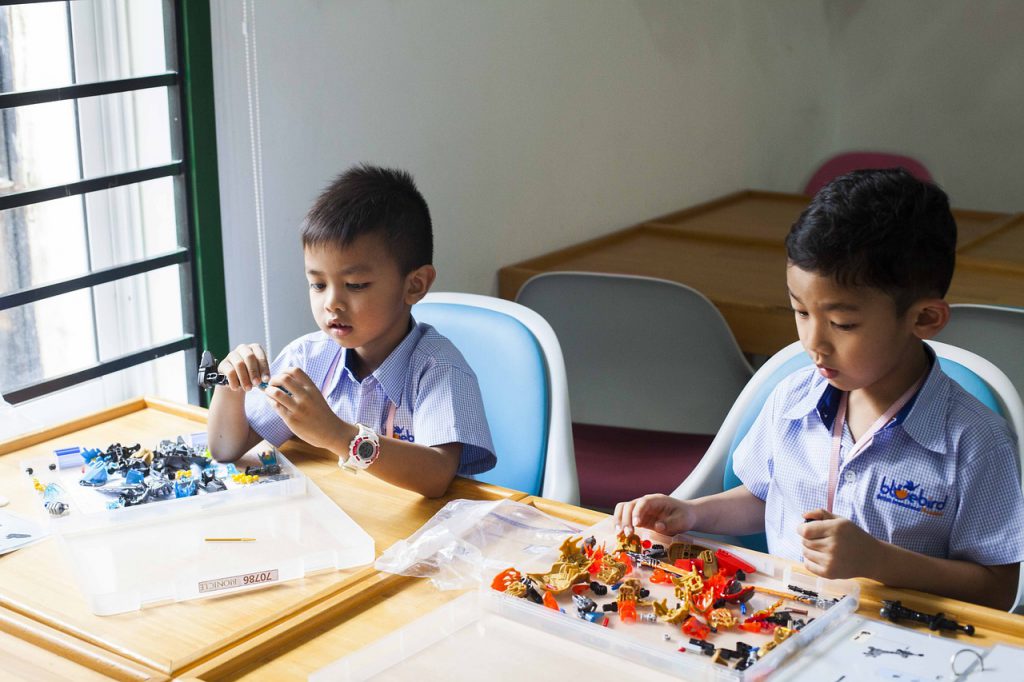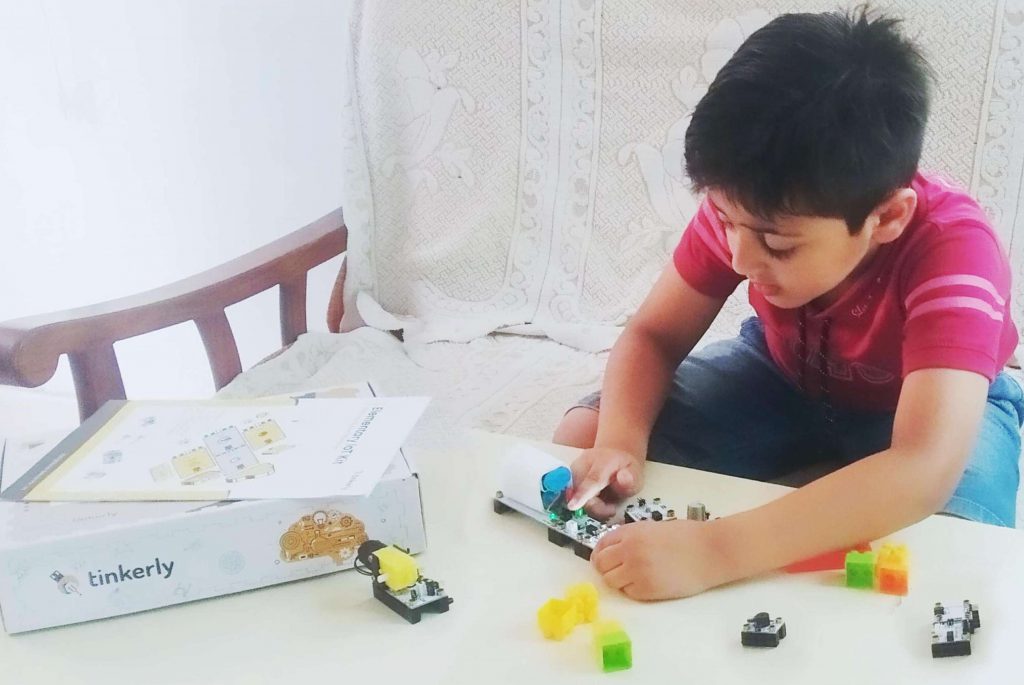When children involve in a hands-on learning activity, it stimulates their drive for exploration and discovery. It will fuel up their natural curiosity to know how things work in real-life scenarios.
This play-based approach to learning is very useful for children to navigate real-life scenarios in their lives. When children play, they use all of their senses to explore their environment. They connect the acquired knowledge and skills with the knowledge that they already know about.
What Do You Mean By Play-based Learning?
Play-based learning is defined as a type of learning approach that consists of interactive self-directed play-based activities that help young minds to build a solid foundation of real-world concepts. The advantage of Play-based learning is that it offers meaningful learning experiences to young minds.

Types of Play-based Learning Approaches:
1. Structured Play-based Learning:
This type of learning is conducted by a teacher who acts as a mediator to help students conduct STEM learning activities and deepen their understanding of the world around them. For example, Board games, Puzzles and, Sorting games.
2. Unstructured Play-based Learning:
This type of learning is student-oriented. It provides students time to engage in free play that depends upon their own choice and interest.
3. Exploratory:
As the name suggests, this type of learning deals with the exploration of new languages, objects, and other things in their surroundings.
4. Self-directed:
This type of play-based learning is student-oriented and gives them the freedom to make their own decisions about what to play with and how do they want to play it. This type of learning keeps the students motivated and strengthens their decision-making and problem-solving skills.
What Are The Benefits Of Play-based Learning?
A play-based learning approach offers multiple benefits to the kids. This approach lets students explore, experiment, and solve real-life problems in playful ways. Given below are the advantages of the play-based learning approach for kids:

1. Development Of Fine Motor Skills
A play-based learning approach also involves some amount of physical activity that helps in the refinement of a student’s fine motor skills. These play-based STEM activities keep the student hooked on learning and make them feel confident and self-assured.
2. Better Alternative To Theoretical Learning
A play-based learning approach is far better than the theoretical approach. It involves hands-on learning activities that teach students real-life concepts in an easy and interactive manner. In the theoretical teaching approach, there is no way to make sure that the student has grasped the concept well. On the other hand, in a play-based hands-on learning approach, the students learn practically while carrying out the experiments. This way they can retain and recall information for a longer time.

3. Learn Through Discovery
Play-based learning helps young minds make strong cognitive connections between real-life concepts. The students will learn through exploration, discovery, and trial-and-error methods. The students acquire a deeper contextualized learning experience through this approach. The play-based mechanism enhances motivation, engagement, and focus among young minds.
4. Amplifies Child’s Imagination & Creativity
This play-based approach of learning helps students bring out their true potential while they engage in hands-on learning activities. Most of the activities consist of play-based scenarios that require students to apply their imagination and creativity. The students come up with diverse ways to solve a particular problem. They learn from their mistakes and use trial-and-error methods to solve real-life problems.
5. Shapes The Structural Design Of the Brain
The play-based learning approach is very vital for brain development. Playful learning helps to shape the structural design of the brain. This approach helps to provides active exploration that helps in building and strengthening the brain pathways. The students who engage in quality play experiences have a good chance to develop memory skills and enhances their language development abilities.
How Tinkerly Applies Play-based Learning In Their Course Curriculum?
Tinkerly’s STEM Learning & Coding courses are based on a play-based course curriculum that is designed by a team of IITians. Tinkerly incorporates play-based learning through its interactive STEM learning kits that are based on the grade-wise logic-building concepts of AI, IoT, Robotics, and Game Development. One of the STEM learning kits is Troot which is India’s first AI-learning STEM toy.

It uses a scenario-based approach using which the student first tries to understand a problem and then uses his knowledge and creativity to solve the problem. It has plug & play modules using which the student learns about AI principles, building a prototype, and also train and integrate a machine learning model.
With the help of using a play-based course curriculum through interactive STEM learning toys, the students’ learning can go beyond the screens. This approach also reduces students’ unproductive screen time by almost 50 percent. In this way, Tinkerly is pushing the envelope for play-based learning through its STEM learning & coding courses.
Subscribe to our blog and be the first one to receive a notification whenever we publish our brand new blog!
 1412
1412




